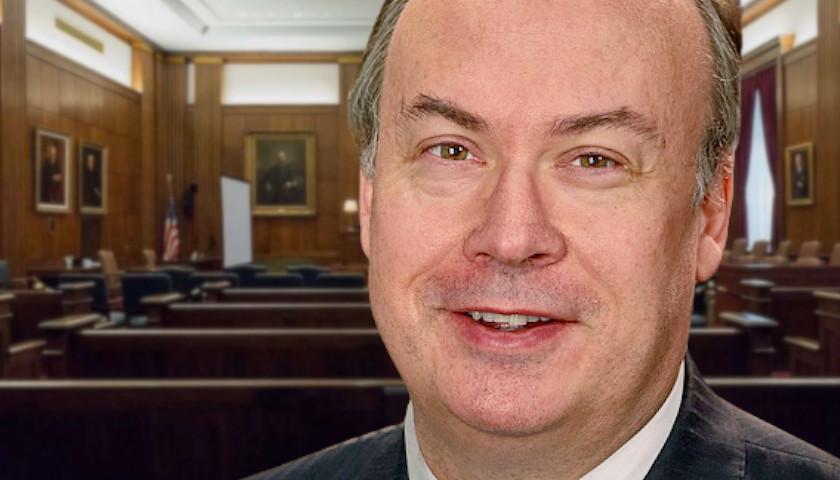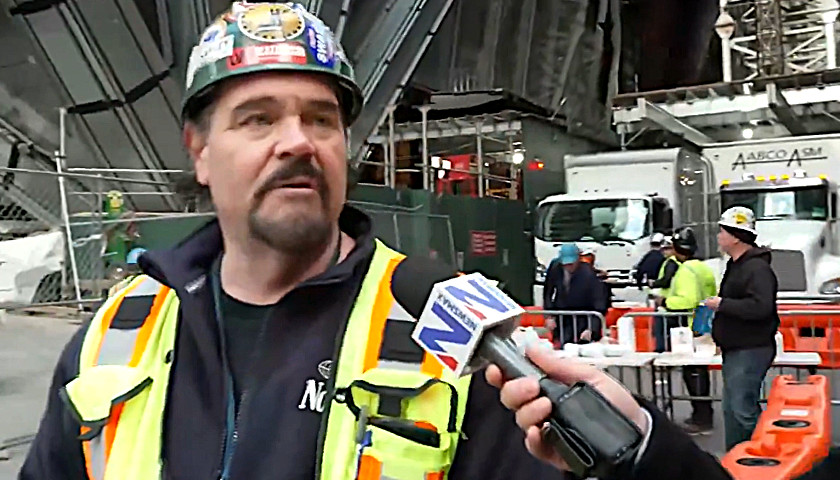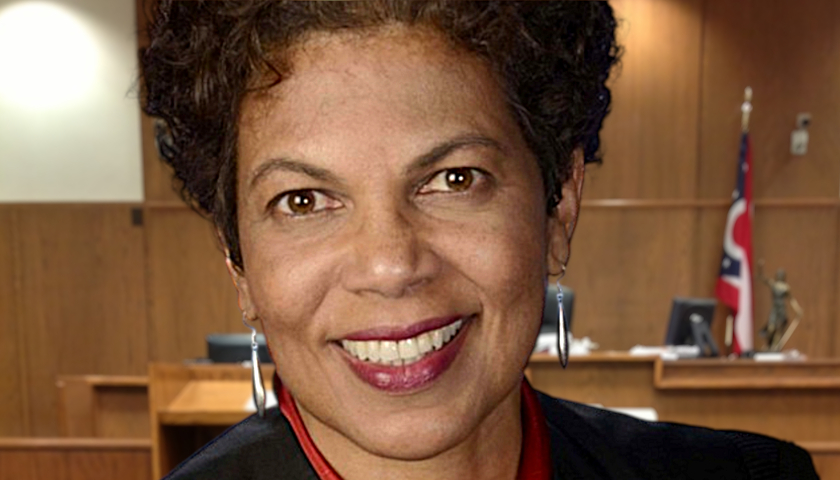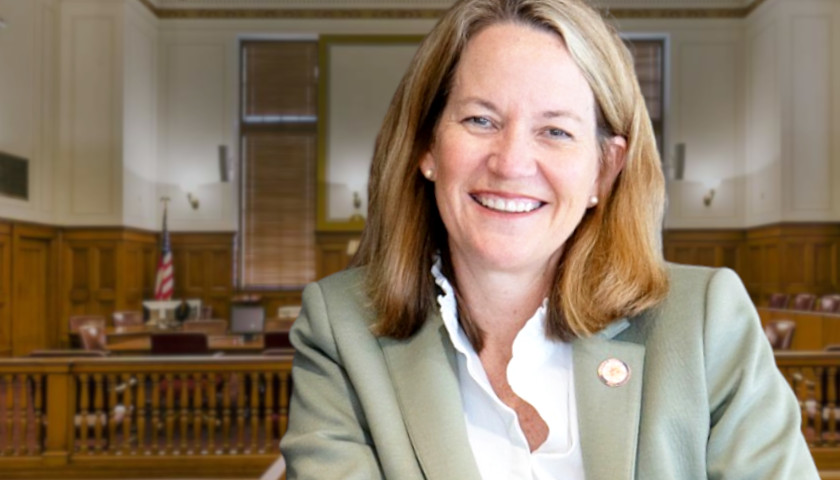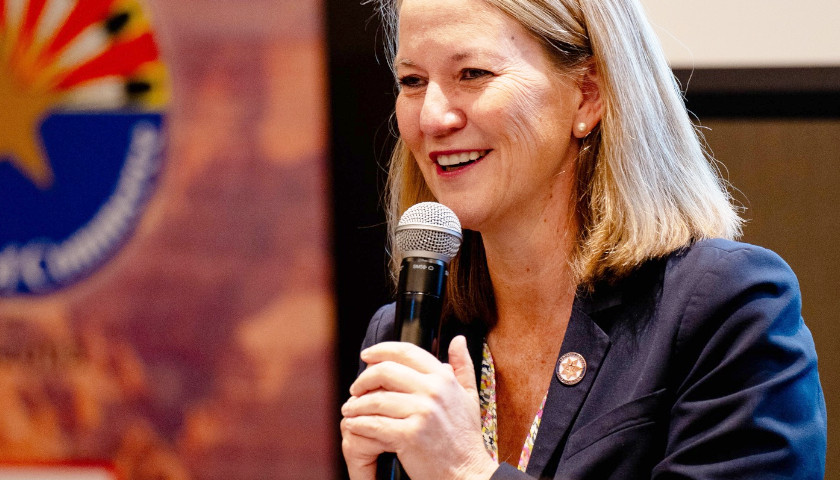Jeffrey Clark, an attorney who served at high levels of the Department of Justice under former President Donald Trump, is being stonewalled in his request to delay a disbarment trial while criminal proceedings in Georgia go forward. Fulton County District Attorney Fani Willis indicted Clark and Trump in a racketeering case over the 2020 election challenges. Willis charged him with dishonesty and attempting to interfere with the administration of justice by the District of Columbia Bar. The charges in both relate to a letter Clark (pictured above) drafted about 2020 election irregularities in Georgia addressed to Georgia officials that was never sent.
The District of Columbia Court of Appeals Board on Professional Responsibility held a hearing last week, and one of the members issued a Report and Recommendation on Wednesday, recommending that the chair deny Clark’s request for deferral.
Hearing Committee member Merrill Hirsh said the standard under Rules 4.2 and 4.1 is whether there is a “substantial likelihood that the resolution of” the criminal case “will help to resolve material issues” in the disciplinary proceeding. Hirsh noted that Clark “shortly expects to receive access to several terabytes of information expected to be produced in discovery in the Georgia prosecution, and which, Mr. Clark argues, may contain exculpatory information.”
Hirsh admitted that Clark said it would “help to resolve this case by potentially mooting Fifth Amendment problems that would prevent a fair trial in the bar disciplinary process here.” If Clark cannot speak about certain issues due to avoid waiving his right against self-incrimination, he “may well be unable to counter the ODC’s allegations against him.” Hirsh acknowledged that Clark pointed out that “holding a hearing while a criminal case is pending against him would be a break from prior precedent — ’sanctions for criminal conduct nearly always follow (not precede) a conviction in the related criminal case.’”
Hirsh reviewed the Office of Disciplinary Counsel’s (ODC) arguments against deferral. The ODC admitted that “it often makes sense for the criminal investigation to proceed because the facts of the underlying conduct are in question and the criminal process has a greater ability to develop those facts (such as by means of search warrants and the grand jury) than is available in a disciplinary investigation, which is limited to subpoena authority for documents only.”
Since Rule 4.2 does not state that “it is more common to have disciplinary charges follow a criminal conviction,” Hirsh declined to consider that. He also had no sympathy for the fact Clark will be forced to defend himself in the two proceedings simultaneously, stating that Rule 4.2 “does not contemplate that disciplinary proceedings will be deferred because a respondent also needs to prepare for other proceedings.” Clark also may be a defendant in the federal criminal case against Trump, Unindicted Coconspirator #4.
Hirsh claimed there wasn’t a substantial likelihood that the criminal proceedings would resolve material issues in the disciplinary matter. Even though he admitted the result “might include the dismissal of the charges (before or after trial), an acquittal, or a conviction,” he said it “involves many layers of speculation” and “too many variables.”
Clark, who briefly served as the acting U.S. Attorney General, has also been trying to remove the Georgia prosecution to federal court since 28 U.S.C. § 1442, the federal officer removal statute, provides that since he was a DOJ official, the proceedings should take place there. However, the federal district court judge threw it out and remanded it back to Georgia state court. Clark appealed to the Eleventh Circuit Court of Appeals and asked for a stay until that court made its decision. Clark cited case law showing that an automatic stay should be granted, and the prosecution failed to file an objection to his request for a stay.
In a similar case involving a DOJ attorney, Kevin Clinesmith, the ODC didn’t start any disciplinary proceedings until Clinesmith was charged and pleaded guilty. Clinesmith “knowingly altered an email he knew would be a basis for a FISA warrant application in the FBI investigation into supposed connections between the Trump campaign and Russia,” Clark pointed out in a pleading.
The ODC also hasn’t begun bar disciplinary proceedings against Hunter Biden, despite the fact he was charged with three felonies in September.
Clark’s only involvement in the 2020 election disputes was drafting a letter in December 2020, while serving in the DOJ under Trump to Georgia officials stating there was “evidence of significant irregularities” in the election. In it, he suggested that the state legislature could take action to address the problems. He urged acting Attorney General Jeffrey Rosen and acting Deputy Attorney General Richard Donoghue to sign the letter, but they refused. At one point, Trump became so frustrated with Rosen that he designated Clark the acting attorney general for a brief period.
Clark has been a regular contributor on the Federalist Society’s website. The pleadings in Clark’s case, along with those to disbar Rudy Giuliani, are located here, and his original answer is here.
– – –
Rachel Alexander is a reporter at The Arizona Sun Times and The Star News Network. Follow Rachel on Twitter / X. Email tips to [email protected].

